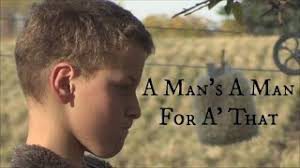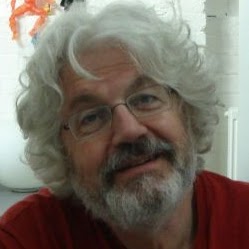It’s been a rough month for understanding emotions. In a rush of sudden departures, I have lost three complex men, with whom my relationships were equally complicated. What follows is my initial effort to rummage through the shadows and identify my most honest responses to their deaths. Not a simple task.
All three were remarkable. One narcissist, one divo, and one hero. All brilliant. All loving, hateful, kind, and even abusive. You were right Bobby Burns. 
The Narcissist
The first death notice was for Urs, a former lover and confidant, who died suddenly in Switzerland. After years of dickering about how and if, Urs and his brother were finally renovating the family homestead near Zürich. In typical Urs fashion, he was cavalierly riding atop a trailer loaded with trash. He slid off and fell under a tractor wheel, which instantly crushed him. My first reaction when I heard the news was a simple nod. Every time I walked or biked with Urs in traffic, I would beg him to observe caution, to obey street signs, to listen to oncoming traffic. He laughed. It was, he reminded me, his desire to go suddenly, without pomp. “I wish to be snatched into the void before I have time to think about it or to be a burden to my children,” he declared. Death by garbage truck became him.
A self-proclaimed polymath, Urs was a financial wiz, a legal eagle, a filmmaker, a photographer, a writer, a painter, a collector. He loved art and argument, music and mental mayhem. His self-absorption was peerless. In his mind, everything revolved around him. He imagined every eye was on him from morning till night. He owned enough pairs of glasses – he called them his mood measurers – to open a curiosity shop of eyewear and had closets full of clothing that would make the Kardashian women seem frugal. He cast all rules of engagement, suffered no fools, tolerated no dissension. I knew that if I didn’t agree with him, if I didn’t like what he chose or did or wanted, he was finished with me. That was all. And for reasons I hardly understood, I was okay with that. Perhaps it was because, at the same time, he could surprise me with his generosity. He arranged a career-changing job for me, and that job took me to London, where I was able to live for nearly three months, thanks entirely to his hospitality. He believed in the opportunity, and he believed in me. . . so long as I was in some way an extension of him.
Urs had a rapier wit, a deep appreciation for irony and The Absurd. He was expert at mugging, and his jokes were delightful. I lost myself in him, allowing his intellect to eclipse mine, encouraging him to void my will. He was an anomaly, and I might have fallen in love with but for his abject cruelty.
One day, as we walked in the NY neighborhood where my son and his family lived, we happened to meet up with my daughter-in-law. She was only a few weeks post-partum and was having her nails done in a local salon. Urs greeted her in the European manner, kissing her on each cheek before he announced imperiously for all to hear, “You look terrible. Did you know you’ve become quite saftig?”
That night, as we prepared for bed, I demanded that Urs apologize. Without discussion, he ordered me to leave. “It’s the middle of the night,” I whined. “You’ll have to walk me home or come down and hail me a cab.” Wordlessly, he pointed me to a mattress on the floor in an adjacent room. At first light, I went home. We were done.
Il Divo
Next was “Dr. Coach,” my longtime collaborator and cheerleader.
I can still hear the sonorous voice that greeted me over the phone the first time I encountered him. “Hello,” it crooned. “Carla Stockton, this is __________, Ph.D., and I have heard so very much about you. I am calling to make an offer I know you won’t refuse.” I didn’t. How could I?
The offer was the job of artistic director for an educational summer theater program for which he was musical director. Ours became a fertile partnership. For several years, we created spectacular productions together – putting talented kids to work building sets, creating costumes, stage managing, acting, and singing for works such as Into the Woods, Most Happy Fella, Sweeney Todd, A Chorus Line, Pippin . . . .
People were astounded. The music we chose was challenging – highly operatic, written for seasoned performers – and the kids nailed it every time. That was all Coach. He could have coaxed music from a plank of wood, and his ability to evoke musical perfection from our charges, to motivate them to reach ever loftier goals, was nothing short of magical. I worked with many music directors over my years in educational theater. Never did I encounter anyone as effective a teacher as he was.
But he had a dark side. He was prone to mad bouts of depression during which he became surly, abusive. He berated me for every possible flaw, both real and imagined, I might have. “You spend too much time on the chorus scenes when we should be working the quartet. Let the idiots go, and focus on our stars.” “Your hair is getting too long, and I think you need a new look. Tell that skinflint of a husband of yours to get you a haircut and a new outfit. I’m tired of jeans.” “You’ll never understand this music. I sometimes think you have a tin ear.” He also had some troubling proclivities.
At the time, Coach was a 60-something-year-old man with a yen for school-aged women. Especially for the youngest, prettiest, most voluptuous, most gifted. Over the years I knew him, he never expressed interest in any woman older than 18. Fortunately, however, he was careful and self-aware, and I never worried he would do anything untoward.
During preparations for a show, he would call me after each rehearsal to share with me which girls he was lusting after. I think he did that to shield himself, to hear me say how absurd it was, what a ridiculous fancy. He never touched them, never crossed any lines of impropriety. I listened and chided him without scolding, encouraging him to continue confiding in me and to continue holding himself back. His passion seemed to enable him to be a kind of Pygmalion for the women he craved, breathing splendiferous life into voices they did not realize they had.
Before the first summer theater season began, I called on Coach to collaborate on a project at the high school where I was employed. I had been asked to direct the senior class production of Into the Woods. I knew there was no way I could pull that show off without a superior music director. Despite the fact that he was in the thick of his choir duties at his school, in addition to the performance he and his students were preparing to take to Washington, Coach eagerly added my project. In auditions, we were dumbfounded by the discovery of a young woman with a flawless soprano voice. She had never sung before, she said, but she already commanded a full three-octave range, and her high notes were the purest I had ever heard. Coach was instantly smitten. He threw himself into the task of coaching her to play the very demanding role of the Witch. She, too, immersed herself in the work.
Every night after rehearsal, Coach would call me and pour out his besotted fantasies. Every day we would go back into rehearsals, where he would maintain complete decorum. Their efforts resulted in a wondrous performance. I have never heard “Children Will Listen” sung as well as that child delivered it. The innocence in our witch’s crystalline voice resonated, gave the song added import. Children did listen.
In 1998, at Coach’s insistence, I wrote a successful grant proposal for a conservatory-style summer program that had an afterschool training component in Bel Canto voice and Shakespearean acting. The State of Connecticut gave us an unprecedented amount of money. We hired actors and technicians and instructors, artists to create seminars and field trips. We were able to produce four plays in repertory. We recruited students from all over the state, and we met in a classroom at a local university from September till May. Then, in the summer, we housed our students at the same campus and bused them to our host high school, where they attended classes and seminars, rehearsed the plays they were in, ate the three meals we provided. We were able to hire dorm supervisors and to take elaborate field trips. It was a golden year, and we were the talk of New Haven County. We could have become an institution. Until Coach lost his resolve.
Soon after summer rehearsals began, Coach realized he could not live without one of our stars. She was a delightful young woman, beautiful and innocent, with a glorious voice. At first, Coach kept his feelings to himself, controlled his cravings. But each day brought him new frustration, and by the second week of the three-week rehearsal run, he was telling not just me but anyone who would listen that he could hardly contain himself any longer. He even told his male students. He was in love, he moaned, and he just must, must, must tell her. At this point, my tolerance waned. “You can’t tell her. You have to stop telling your boys. And you cannot touch her. This has to stop NOW.” He curbed his hunger, but we were no longer friends.
I was sad to lose him, but I was diverted by personal concerns and paid no attention to what he was up to. He took advantage of my silence and spread nasty rumors. He told parents of some of our young techies that I had cheated them out of pay. He told the district I had pilfered money intended for buses. He told colleagues in the community that I had subverted the program, and his accusations ensured that our grant was not renewed. I only learned about the tales much later, by which time I had no desire to engage with him on any level. I settled into my life and assumed that we would eventually become acquaintances with memories of a very successful collaboration.
Sometime in 2006, and I saw him examining the produce in a local market. Spreading my arms wide, I declared, ”_____________, Ph.D., I haven’t seen you in forever!” He glowered at me for a millisecond, then turned his back and walked away.
The Hero – DAN ALON, his story follows in the next entry.


